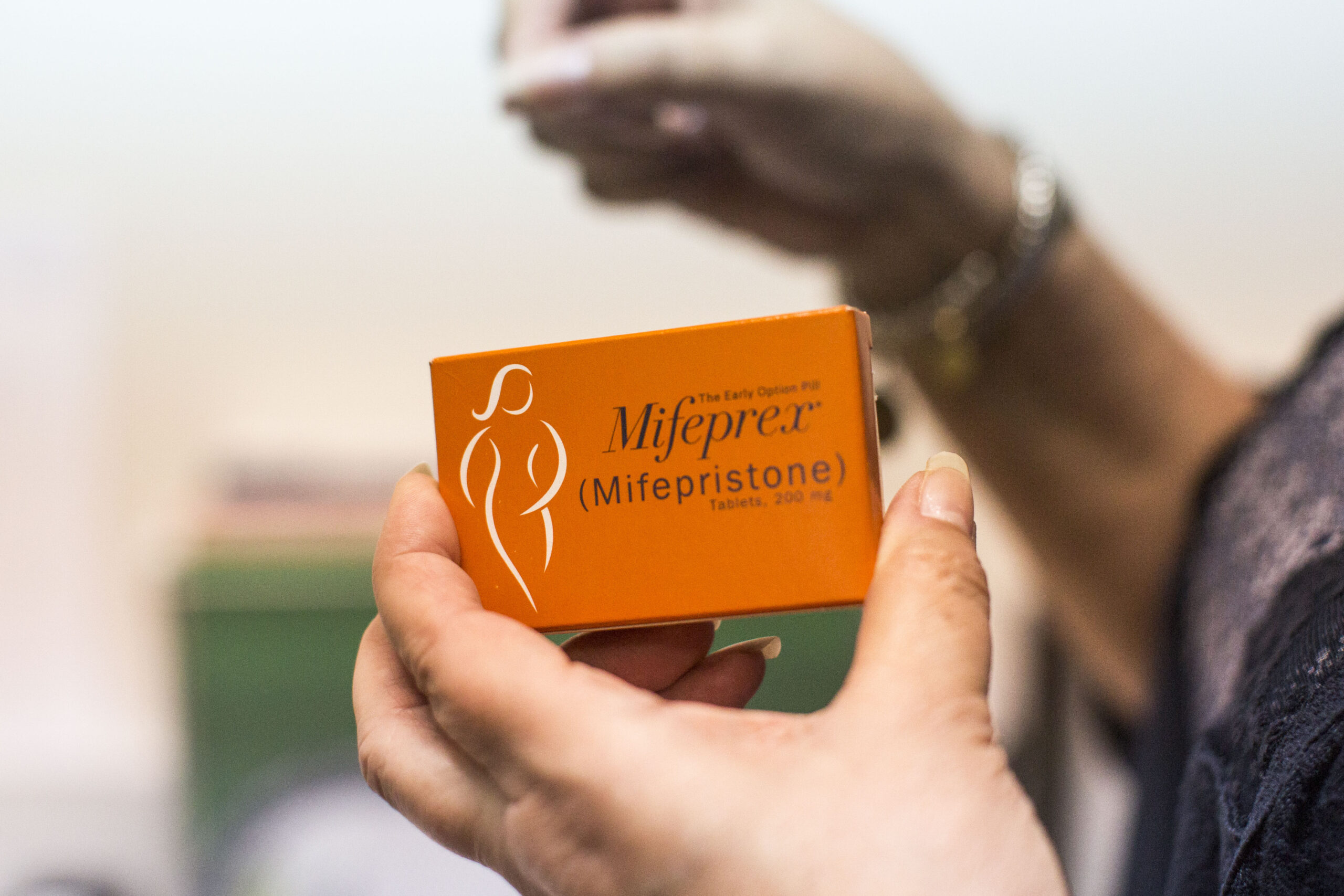A federal judge in Amarillo invalidated the Food and Drug Administration’s long standing approval of the abortion pill mifepristone late last Friday.
Then, less than an hour later, a federal judge in Washington state ordered the FDA to do nothing that would restrict access to the drug.
So what happens now?
Elizabeth Sepper, a professor at UT Austin School of Law, said if the ruling out of Amarillo by U.S. District Judge Matthew Kacsmaryk stands, it would go into effect on April 14. The case in Texas was brought by a coalition of anti-abortion rights groups called the Alliance for Hippocratic Medicine. The alliance sued the FDA last year over the approval of mifepristone, which occurred in 2000.
The case in Washington state involves over a dozen attorneys general from states that are supportive of abortion, Sepper said.
“What they want is for the FDA to take down some of the restrictions on misoprostol that they say are scientifically unnecessary and should not have been put into place by the FDA. But they also ask that the judge order the FDA to keep in place the access to mifepristone in those states,” she said. “So the judge did not issue a nationwide injunction against the FDA, but did issue an injunction that in those more than a dozen states, the FDA cannot make access to mifepristone more difficult, which is to say the FDA can’t comply with the ruling from Amarillo.”
It is possible this issue, with conflicting injunctions, will go to the U.S. Supreme Court, Sepper said, but not guaranteed.
“The Biden administration has already filed a notice of appeal in the 5th Circuit. If the 5th Circuit were to grant a stay of Judge Kacsmaryk’s decision, then there wouldn’t be a need to rush to the Supreme Court,” Sepper said. “But it is possible that the Biden administration will, in fact, need to head to the Supreme Court to at least ask for a stay of these conflicting rulings.”
Sepper said that the recent Dobbs decision which overturned Roe v. Wade doesn’t serve as much of a guidepost for how the court might rule on a case about mifepristone.
“Dobbs was a case about whether the U.S. Constitution protected the abortion rights. These dueling cases are about the administrative processes that the FDA uses to approve drugs,” Sepper said. “It’s enormously consequential for access to medication abortion. It’s also enormously consequential for how the FDA approves drugs in general. But the analysis is totally different. The legal issues are legal issues around when someone can challenge the FDA’s approval of a drug – how soon they need to challenge the FDA, of course, having approved mifepristone back in 2000.”
Sepper said if the Supreme Court were to take the case and side with the FDA, it would likely have more to do with the merits of the case, rather than the abortion access piece.
“What you have from this Amarillo court is a sweeping decision that allows standing where someone hasn’t been injured, that allows a group to file claims, even though there’s a six year statute of limitations, and they’re well beyond that time period,” she said. “And so it’s the sort of legal questions that should have been resolved in favor of the government, but they’re not really high profile abortion-related issues.”
Sepper also clarified that in states where abortion is already severely restricted, mifepristone is not readily available.
“In states with abortion bans, there’s very limited access to mifepristone, and it’s only going to be used in exceptional cases. For instance, here in Texas, where necessary to save a life or really severe health threats,” she said.
If Kacsmaryk’s ruling wins out, the biggest impact will be in states where abortion is still legal, Sepper said.
Sepper said though it might seem strange to get two related rulings one after the other, it’s not actually uncommon.
“It’s not the first time that we’ve seen competing district court opinions come out simultaneously or near simultaneously where we have litigation, especially in the health care space,” she said. “But certainly the states that filed the lawsuit in Washington were looking at the suit here and trying to make legal moves to protect the citizens of those states from what was looking to be a case that would have national impact but had been filed before a judge who was handpicked by a conservative Christian right group.”
Beyond the potential impact on mifepristone, this case could also impact the role of the FDA and the U.S. drug market, Sepper said.
“The United States prides itself on its drug innovation and the role the FDA plays here. The drug companies are facing the loss of their rights to manufacture and distribute a drug that had been approved,” she said. “The ruling involving mifepristone actually points to the fact that the label doesn’t exactly match all the studies. It suggests that the FDA has to only approve uses where the study design of clinical trials absolutely matches what they approve, and it would dramatically change the types of drugs that the FDA could approve.”












